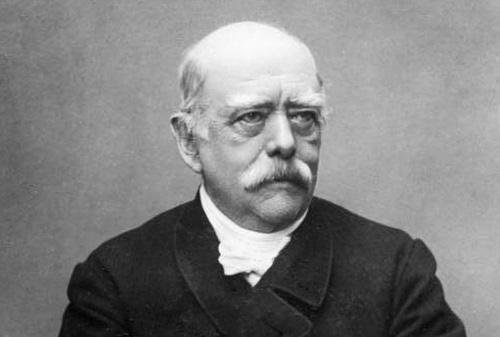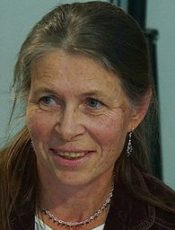Who and why decided to turn the European policy into the format of Weimar triangle? This geometrical pattern was created by France, Germany and Poland in 1991 as a result of Soviet bloc’s disintegration. It became obvious soon that it had no common agenda to address and, subsequently, no reason to hold meetings. The Visegrad group (Poland, Hungary, the Czech Republic and Slovakia) suffered the same fate. The interest to these diplomatic ventures gradually waned.
A quarter of century later the crisis in Ukraine gave an impetus to the Weimar Triangle’s revival. In the autumn of 2014 the three foreign ministers gathered in Weimar to forge a common position on Ukraine’s presidential election. Then they unanimously condemned the “annexation” of Crimea. There were more meetings to follow. In September 2014 the ministers of State and State Secretaries responsible for European affairs from Germany, France and Poland met in Herleshausen (Land Hesse) for political talks. In October 2014 Laurent Fabius, Minister of Foreign Affairs, visited Berlin and Weimar for consultations in the “Weimar Triangle” format with his German and Polish counterparts, Mr. Steinmeier and Mr. Sikorski. In March, 2015 the "Weimar Triangle” format meeting of Defense Minister of Germany Ursula von der Leyen, French Defense Minister Jean-Yves Le Drian and Polish Minister of Defense Tomasz Siemoniak was held in Potsdam. The ministers agreed to strengthen the defense of the European Union. It dovetails with the idea of creating a European army put forward in early March by European Commission President Jean-Claude Juncker. German Defense Minister Ursula von der Leyen strongly supported the initiative saying Germany was ready to participate.
The proposal to form a European military is not new. France made the idea float in the middle of the XX century. Back then it was blocked by Great Britain and Spain. The defence chiefs meeting was followed by the talks held by ministers of foreign affairs to exchange their views on the Ukrainian crisis, as well as the European neighborhood policy. Poland is interested more than others in the revitalization of Weimar Tringle activities, especially in view of events in Ukraine. Since a long time ago Warsaw has been pursuing its own goals there. It also acts in the interests of the United States. Poland does not like the fact of being excluded from the Normandy format (a diplomatic group of senior representatives of the four countries – Germany, Russia, Ukraine and France – to resolve the situation in the East of Ukraine). Warsaw has expressed its dissatisfaction on a number of occasions. Berlin has stated that the Poland’s position will be taken into account. It’s not clear how Angela Merkel is going to keep her word. The European security cannot be guaranteed without Russia (as Merkel said during her visit to Poland in November 2014).

And she told the truth. These words make one draw a comparison between Merkel and Otto von Bismarck, nicknamed the “Iron Chancellor” (“the Mad Junker”) who gathered scattered German lands into an empire to proclaim the Second Reich. It would be a mistake to say that the years of his rule was the golden age for Russia-Germany relations. In his letters to Gorchakov (chancellor of Russian Empire from 1863 to 1883) he sounded rather sentimental, but his flattering style was too good to be true. It made doubt his sincerity. His machinations at the Congress of Berlin (a meeting of the representatives of the Great Powers of the time – Russia, Great Britain, France, Austria-Hungary, Italy and Germany – held in June-July 1878) effectively disavowed Russia's victory over the decaying Ottoman Empire in the Russo-Turkish War of 1877–78. When it came to Russia Bismarck balanced to pursue the goal of strengthening the Germany’s position in Europe. No such thing as gratitude exists in politics. Why should the Minister-President of Prussia feel gratitude to Russia for supporting him in his efforts aimed at unifying separate states under the banner of German empire? In a way, Merkel follows Bismarck – she feels no gratitude to Moscow for allowing Germany to reunify. Though it was not exactly reunification in strict terms. West German simply devoured East Germany.

On April 1, Germans marked the 200th anniversary of the birth of Otto von Bismarck. The publications devoted to the event say the “Iron Chancellor” supported the idea of sanctions against Russia and deterred it from aggression against Turkey. It makes Merkel look almost like a politician acting in accordance with the traditions of the Second Reich Empire – the days of glory in German history.
In reality there are more things that divide the two politicians than unite them. The Bismarck’s European policy was called “juggling with all five balls” (meaning Austria, Russia, Great Britain, France and Germany). The Merkel’s blowing hot and cold or trying to stand with her legs in two camps – the Normandy Four and the Weimar Triangle – has nothing to do with juggling. It looks more like inability to choose an independent course to be adamantly followed. Besides, in the contemporary Europe the balls have quite different weights. What is more, Germany remains to be a ball in the hands of overseas juggler.









